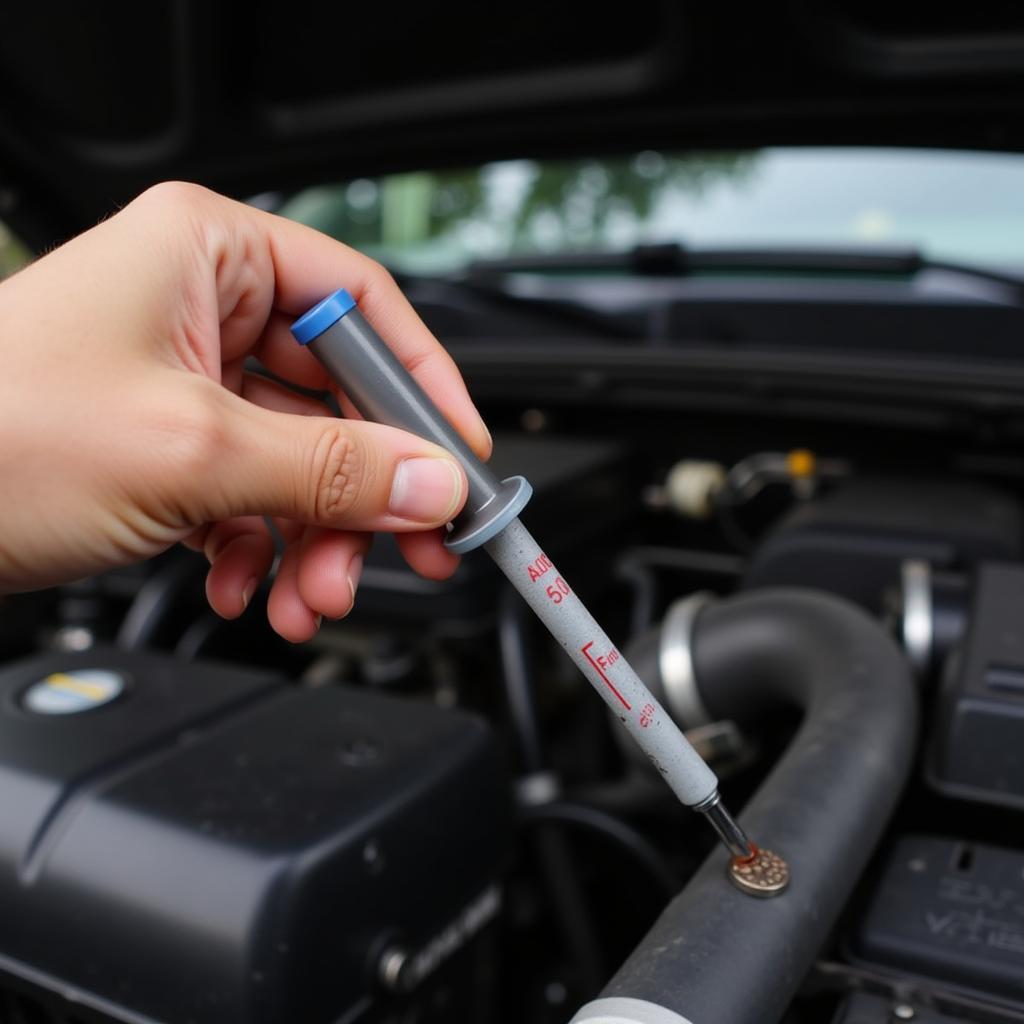Experiencing an “electrical problem car won’t start” situation is frustrating. Within the first few seconds of turning the key, you realize something’s amiss. The engine doesn’t crank, the lights might be dim, or there’s an unnerving silence. This guide will help you diagnose and possibly even fix these common electrical gremlins that prevent your car from starting.
Common Causes of an Electrical Problem Car Won’t Start
Several electrical culprits can cause a no-start condition. These range from simple fixes like a dead battery to more complex issues like a faulty ignition switch. Let’s break down the most frequent offenders:
Dead or Weak Battery
The most common cause of an “electrical problem car won’t start” scenario is a dead battery. Over time, batteries lose their ability to hold a charge. Extreme temperatures, leaving lights on, or a faulty charging system can accelerate this process. Check for dim headlights, a slow-cranking engine, or no response when you turn the key.
Corroded Battery Terminals
Even if your battery has juice, corroded terminals can prevent the current from flowing. This corrosion appears as a white, powdery substance around the terminals. Cleaning them with a wire brush and baking soda solution can often restore the connection.
Faulty Starter
The starter motor is responsible for cranking the engine. A faulty starter might produce a clicking sound when you turn the key, but the engine won’t turn over. problem with chips for cars can also impact the starter’s functionality.
Ignition Switch Problems
The ignition switch supplies power to various electrical components, including the starter. A failing ignition switch may prevent the car from starting altogether.
Bad Alternator
While a bad alternator won’t directly prevent your car from starting if the battery has some charge, it will prevent the battery from recharging. This can lead to a dead battery and subsequent starting problems.
Wiring Issues
Loose, damaged, or corroded wiring can disrupt the flow of electricity, leading to a no-start situation. This can be a tricky problem to diagnose and often requires a thorough inspection of the wiring harness.
Troubleshooting Your Electrical Problem Car Won’t Start
If your car won’t start due to an electrical issue, here’s a step-by-step guide to help you troubleshoot the problem:
- Check the Battery: Begin by inspecting the battery terminals for corrosion. If present, clean them. Try jump-starting the car. If it starts, your battery is likely the issue.
- Test the Starter: If the battery is good but the engine doesn’t crank, the starter might be faulty. You can test it using a multimeter or by having a mechanic check it.
- Inspect the Ignition Switch: A faulty ignition switch can be diagnosed by a mechanic. If the key turns but nothing happens, the ignition switch could be the problem.
- Examine the Alternator: While a bad alternator won’t cause an immediate no-start, have it tested if your battery keeps dying.
“A weak battery is often overlooked, but it’s a primary culprit for no-starts,” says John Smith, a seasoned automotive electrician at Auto Electric Solutions. “Always start your diagnosis with the battery.”
Preventing Electrical Problems
Regular maintenance can help prevent future electrical issues:
- Battery Care: Clean the battery terminals regularly and have your battery tested annually.
- Wiring Inspection: Periodically inspect your car’s wiring for damage or corrosion.
- Prompt Repairs: Address any electrical issues as soon as they arise to prevent further damage. what is the problem with car chips is also a good consideration for preventative maintenance.
“Don’t wait until your car won’t start to address electrical problems,” advises Maria Garcia, lead mechanic at Garcia’s Auto Repair. “Regular checks and timely repairs can save you a lot of headaches down the road.” the car with the most problems often have significant electrical problems. ct lemon law paint problems with car can sometimes stem from underlying electrical issues as well.
Conclusion
An “electrical problem car won’t start” situation can be frustrating, but understanding the common causes and troubleshooting steps can help you get back on the road quickly. Regular maintenance and prompt repairs are essential to preventing these issues in the future. For further assistance, connect with AutoTipPro at +1 (641) 206-8880 or visit our office at 500 N St Mary’s St, San Antonio, TX 78205, United States. rental cars sold in west virginia problems are sometimes related to electrical problems, so it is always important to check these thoroughly.






Leave a Reply